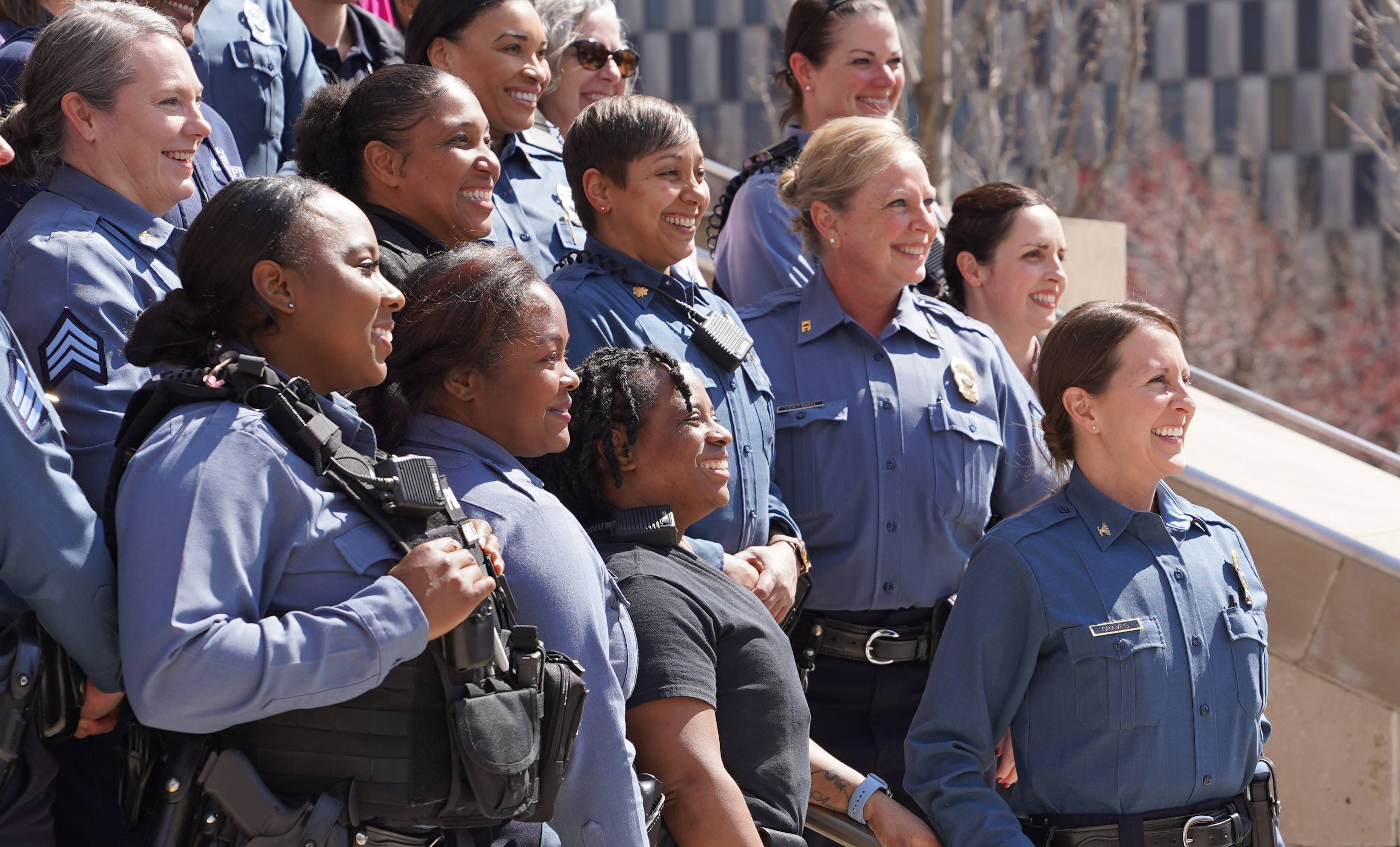Importance in Policing
Police experts nationwide have long believed that increasing the number of female officers is key to the success of community policing goals. Women can perform all facets of policing as well as their male counterparts, and they also have a natural ability to verbally deescalate volatile situations.
FINDING THE PERFECT FIT
Young women and second career women alike find that police work combines diverse challenges, good pay and benefits and the strong appeal of community involvement. All women receive the same training as their male counterparts, which enables them to move into a variety of areas within the department without the barriers often experienced in other occupations.
TALK TO An OFFICER AT KCPD
KCPD understands that there are specific questions potential female applicants are interested in asking before applying to become a police officer. That is why our recruitment team includes a female officer who can provide a first-hand testimonial about what it is like to work at KCPD.
Get to know our recruiter, Officer Amber Hoffman.
MEET A FEW WOMEN OF KCPD
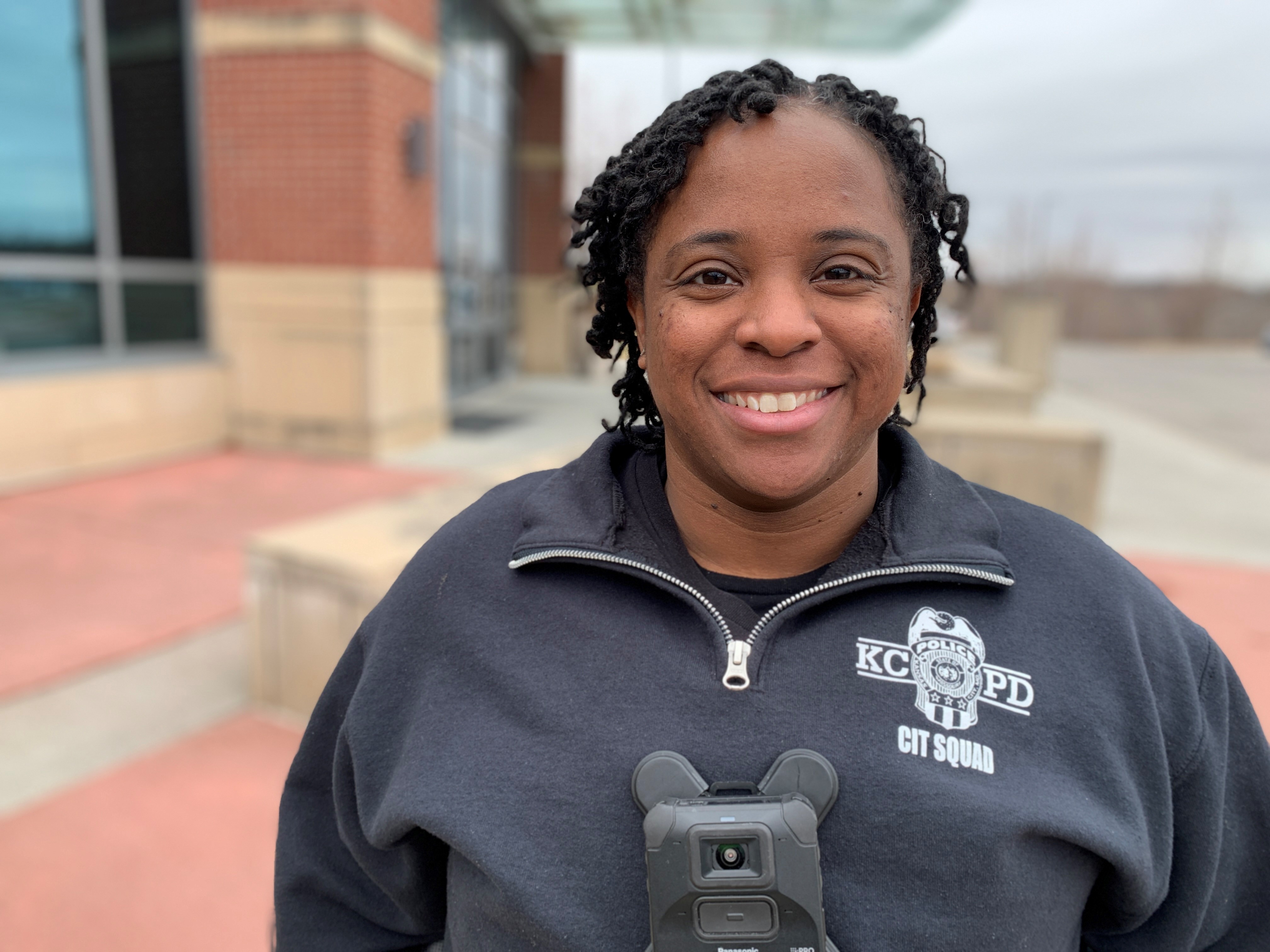
“Learning how to interact with people who have a mental illness drew me because they’re so misunderstood,” says Humphrey. “They’re sick like anyone else who has a disease.”
officer teurika humphrey
As a Crisis Intervention Team (CIT) officer, Teurika Humphrey has constant contact and follow-up with people in distress or in crisis. She works with social workers and community behavioral health liaisons to make sure people receive medications, food, or whatever else they need.
Officer Humphrey and her fellow CIT officers also help get people into mental health court if they commit a crime. “The judge can order them to receive services and assistance,” Humphrey points out.
In addition to helping residents, Humphrey supports fellow officers. She trains them in mental health awareness (over 55% of all KCPD officers have received 40-hour CIT certification) which includes the teaching of de-escalation skills.
DETECTIVE KATIE HORINE
Horine is in her seventh year as a detective, following four years as a patrol officer. The Smithville native originally hoped to become a criminal profiler with the FBI. But when she started at KCPD to gain experience, she became enthralled with her work serving KCMO.
With a degree in psychology and a minor in childhood studies and criminal justice, Horine gravitated towards working in the Juvenile Section. She is a voice for abused children, working with Family Court, the Children’s Division, the prosecutor’s office, and advocacy centers to deliver justice.
The work in this unit brings unique stressors, but also the opportunity to protect children. One of Horine’s most memorable cases concluded with a suspect going to prison for sexually abusing four children in the neighborhood.
“Going to his sentencing with the victims was very impactful and rewarding,” Horine said.
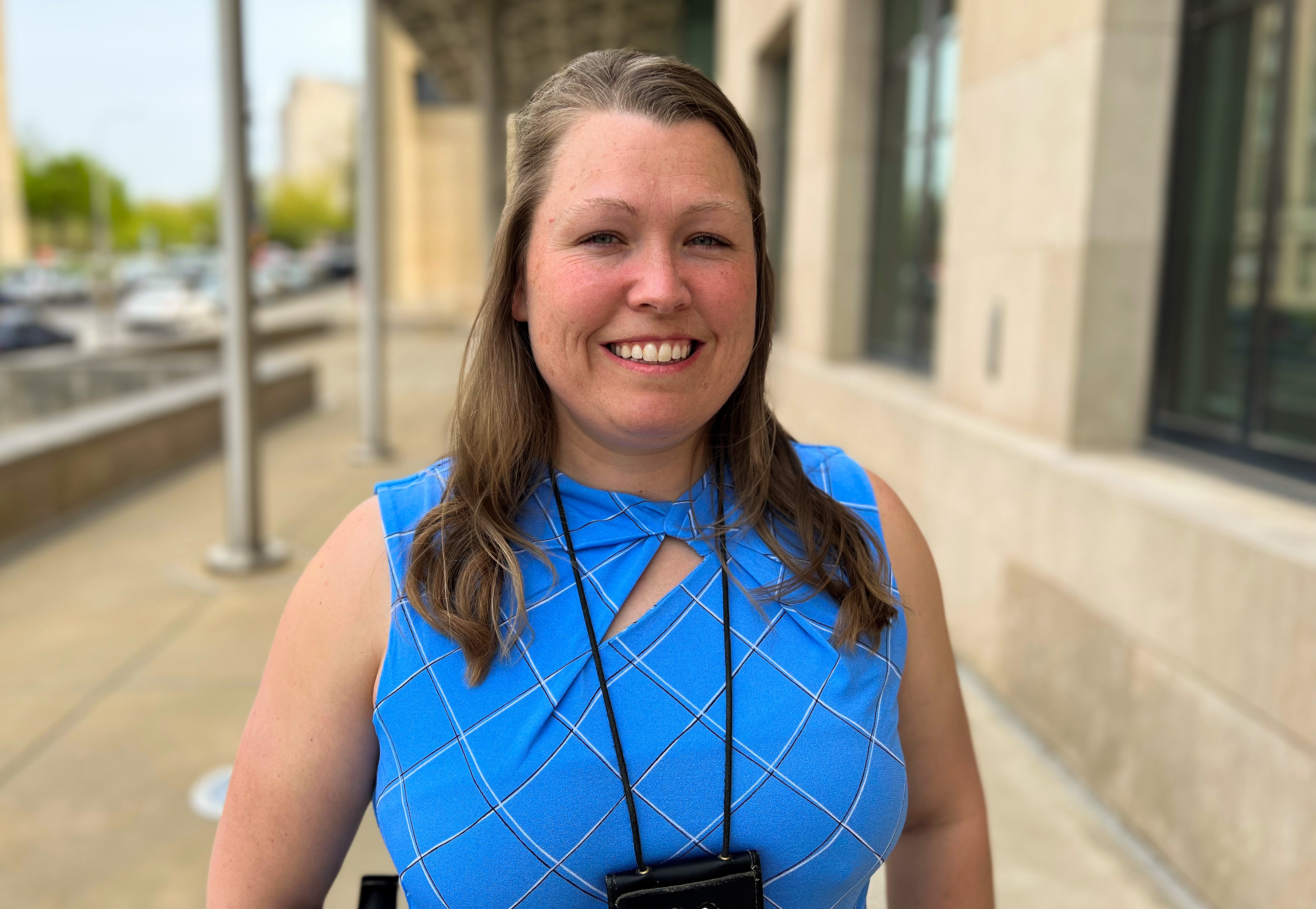
“Being a voice for the kids is something that is needed, but not a lot of people are able to do it,” Horine said.
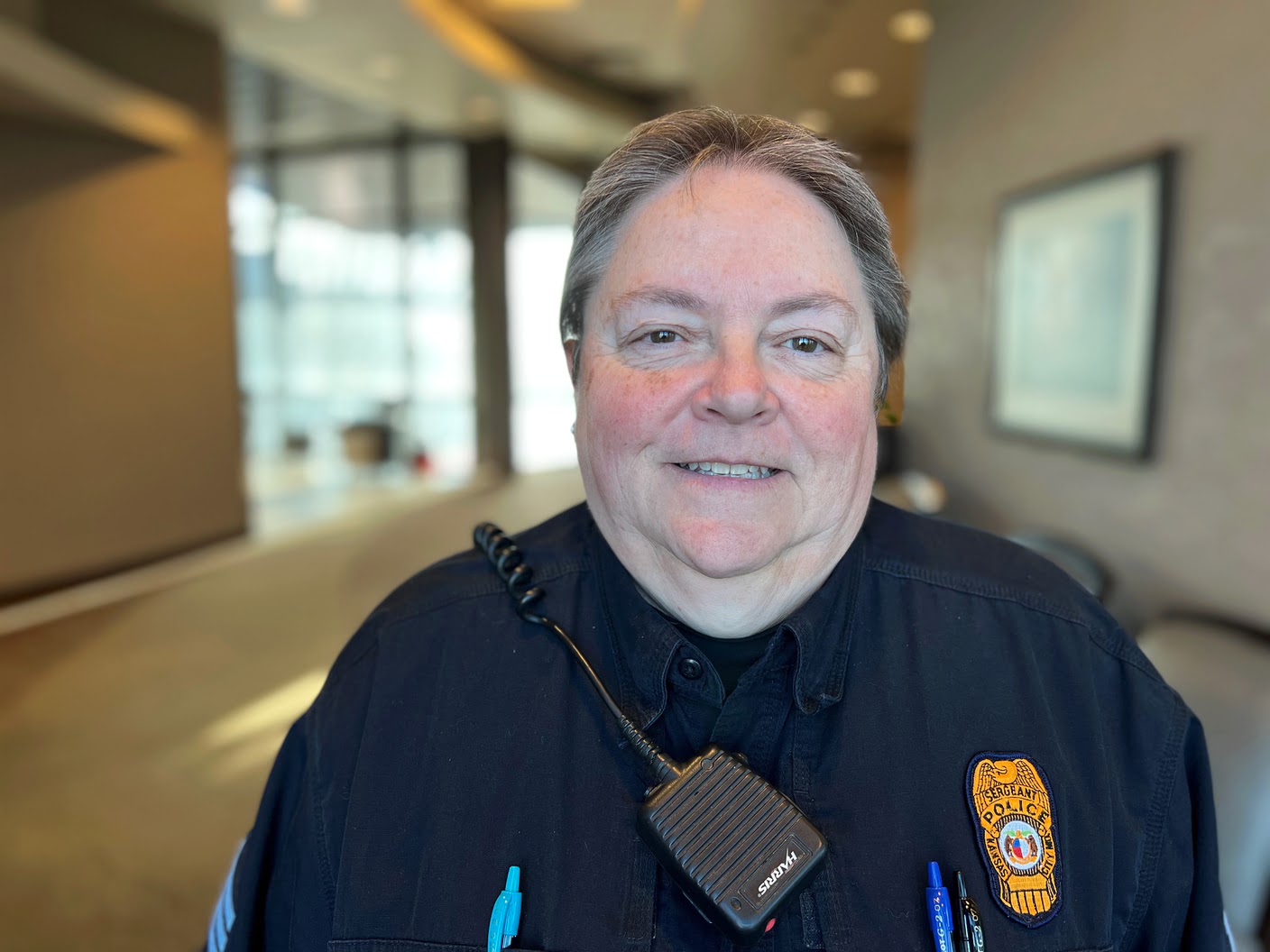
She could retire now, but “I love coming to work,” Randol said. “The camaraderie makes it a great environment.”
Sergeant Deborah Randol
In middle school, Randol would listen to her neighbors, officers, tell stories. The Springfield, Mo., native wanted to be an officer, but high school wrapped up, and Randol found herself in healthcare. Years passed, and when her roommate, a Kansas City native, moved back home, Randol tagged along. Except this time, at 29, she leapt into her faith.
“I just wanted to give policing a chance because it was always in my heart to do,” Randol said. “I got in and have loved every minute since.”
Over three decades, Randol has treasured the supervisor role where she could impact lives and careers. In 2002, she earned a promotion to sergeant, working various assignments before transferring to Street Narcotics. Then in 2013, when the Accident Investigation Unit needed a strong supervisor, Randol got the call.
Major Kari ThompsoN
Major Kari Thompson likely inherited her can-do attitude from her parents. Her mother was a nurse and social worker, while her father was an industrial engineer. Together, they taught Thompson to serve her community and church in Tulsa, Okla.
Thompson was a claims adjuster out of college before transferring to Kansas City. After arriving, she joined KCPD in late 2002. True then and still today, policing needs more women, Thompson acknowledges. Still, her skills were on full display.
“I was able to defuse disturbances and change the narrative, change the tone, bring things down,” Thompson states. “I quickly found my niche in my sector, and it was a great experience.”
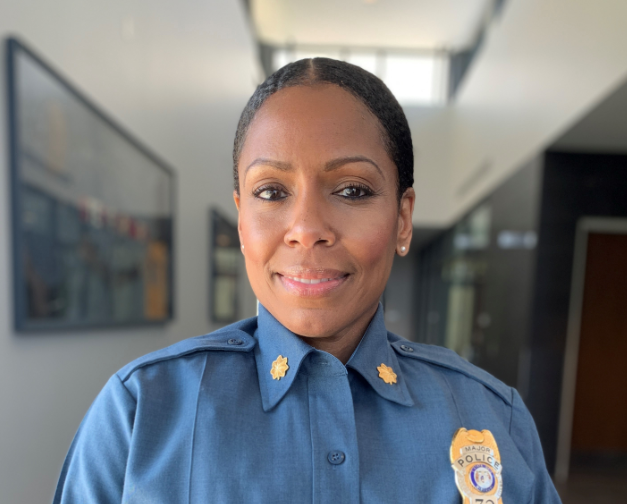
“I’m not ignorant to the fact that there’s negativity out there,” Thompson says. “Things won’t always be perfect, but our effort will be.”
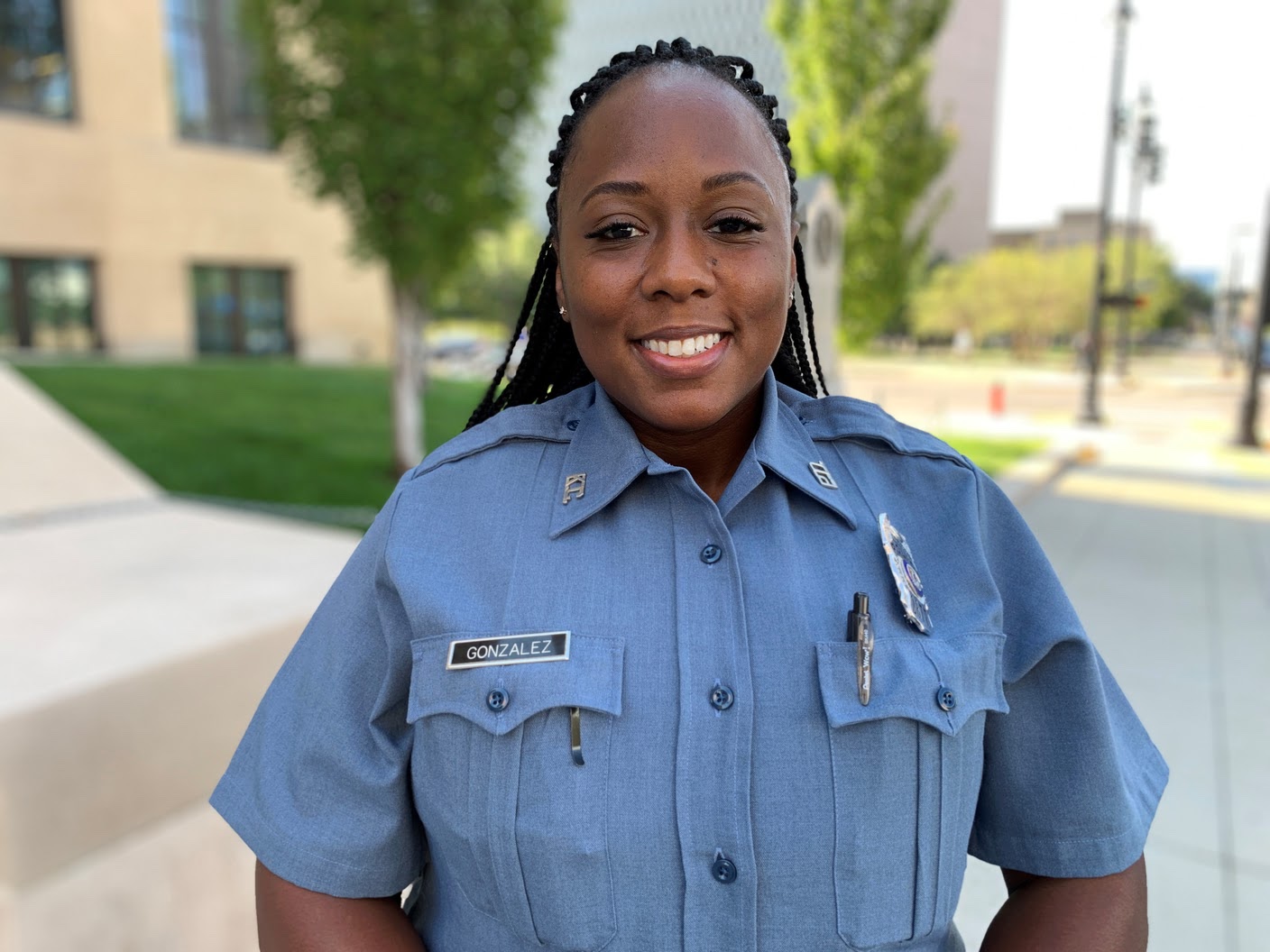
“In law enforcement, you can impact so many different lives. You can change someone’s future. I had to do it because it was bigger than me.”
Officer Mary Gonzalez
Since graduating from the police academy in 2022, Officer Mary Gonzalez has undertaken additional crisis intervention and domestic violence trainings. Gonzalez hopes residents see her as an ally.
“I was helping a woman whose ex had stolen her vehicle,” Gonzalez explained. “We were with the vehicle, but she’d have to wait hours for her tow truck. Instead, I ordered a tow and stayed with her throughout. Two days later, the woman sent cookies to the station with a note reading:
I can’t believe you stayed with me. I thought you would have left me there. This man could have come out and attacked me. You don’t know how much you changed my perception of police.
“That’s why I joined and that’s why I’m here,” Gonzalez said of the note.
Gonzalez had her choice of police departments to work for, but she preferred what KCPD offered. She felt that the high number of specialized units would provide her with a breadth of experience.
Sergeant Belkis Cisneros
Born in Nicaragua and raised in L.A., Sergeant Belkis Cisneros spoke Spanish at home with her mother. It was there where Cisneros also witnessed domestic violence, and the idea to join law enforcement was born.
“You see an officer come in and stop it,” Cisneros recalled. “When you know your mom’s okay, as a kid, you have that sense of relief. I wanted to do that for another kid, which is why I wanted to be a police officer and work cases that involved children.”
Many years ago, Cisneros’ two brothers moved to Kansas City and became officers at KCPD (one brother remains as a detective). Cisneros followed. After serving as a patrol officer, she spent several years as a detective in the Juvenile Section, investigating crimes against children. These detectives work on custody issues and investigate parental kidnappings and all forms of abuse against children.
She has since been promoted to sergeant where she continues to fight for justice for all.
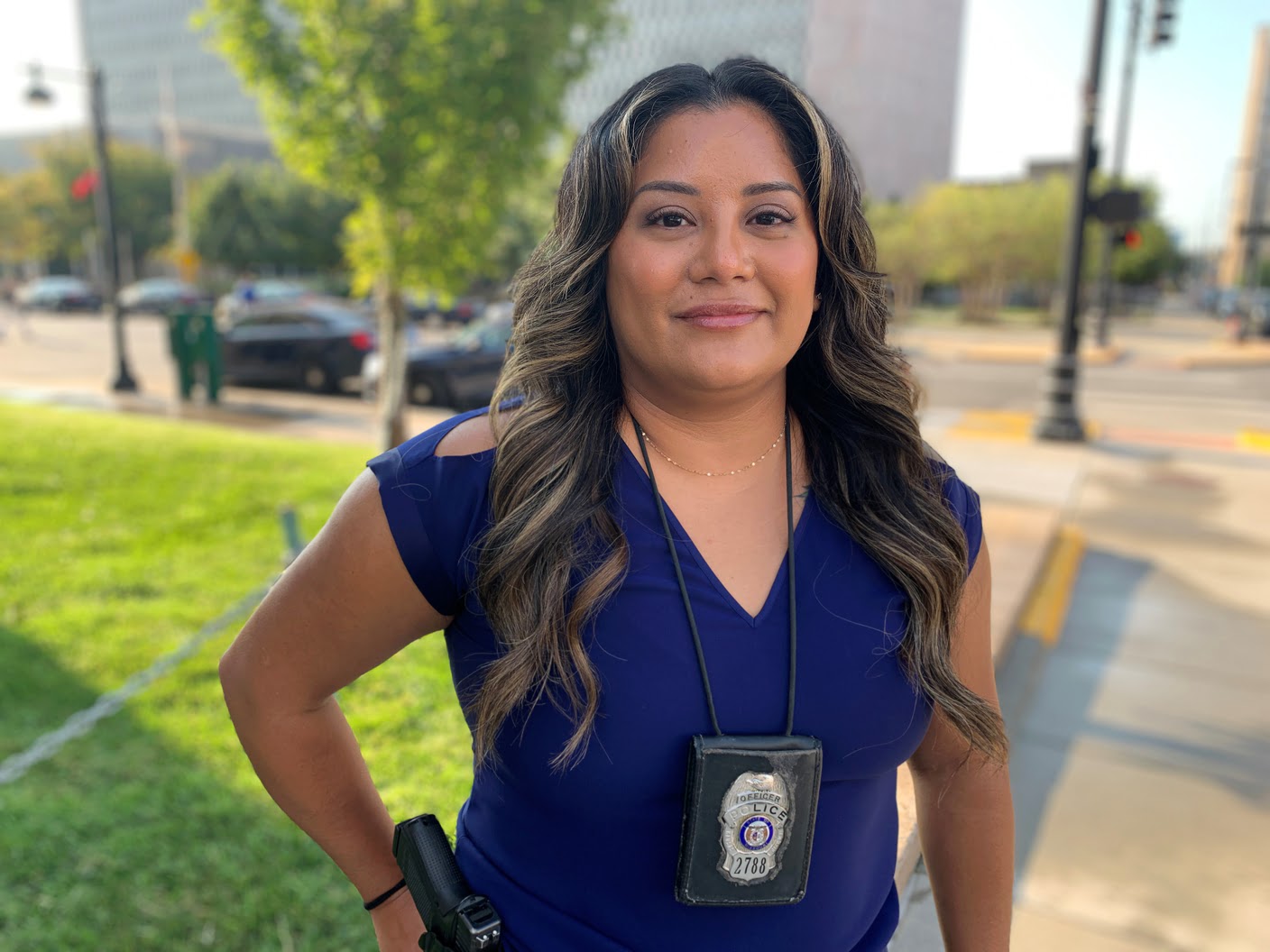
“These kids do not choose to be in those situations,” Cisneros explained. “They don’t choose to be the child of an abuser. I can be the voice for that child, and there are things I can do to protect that child.”
